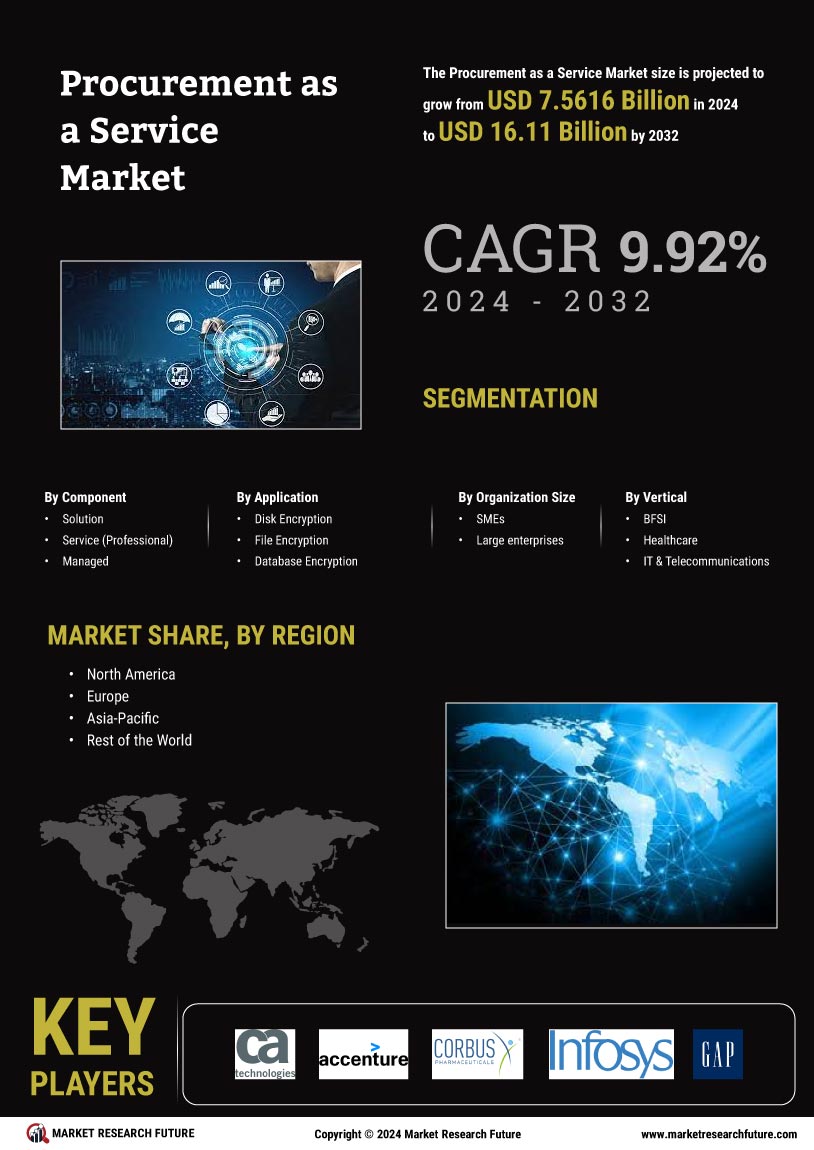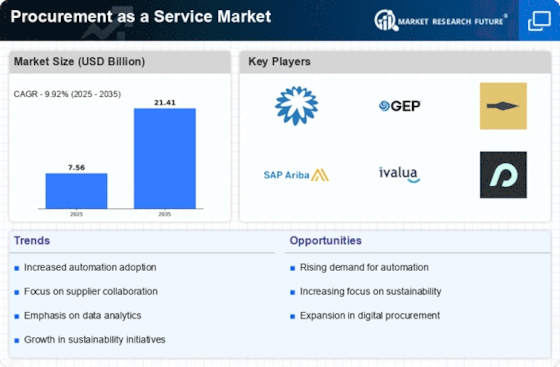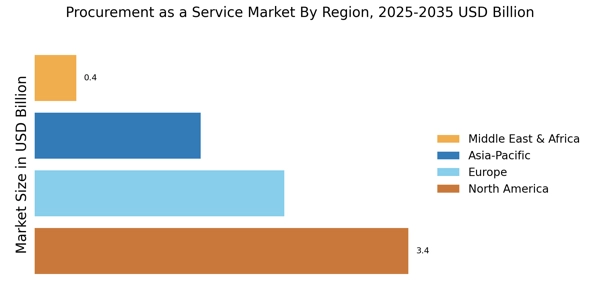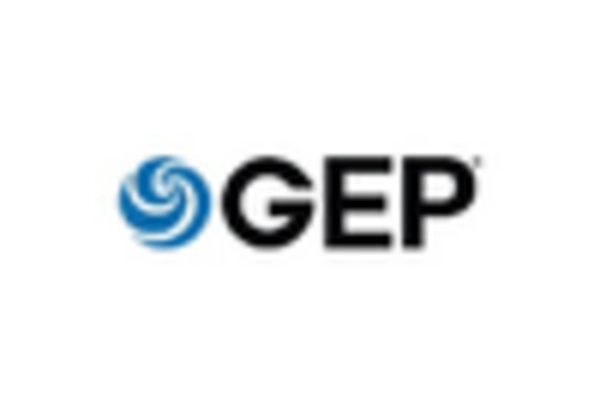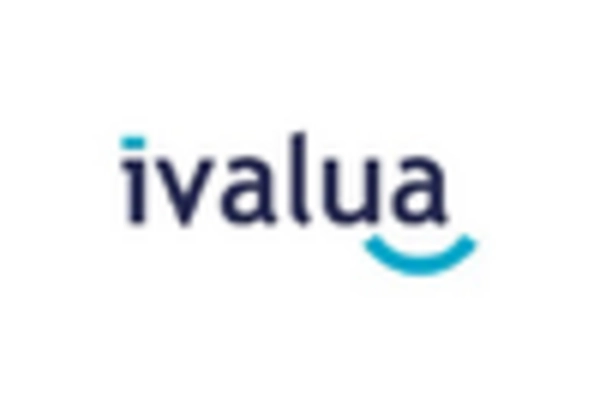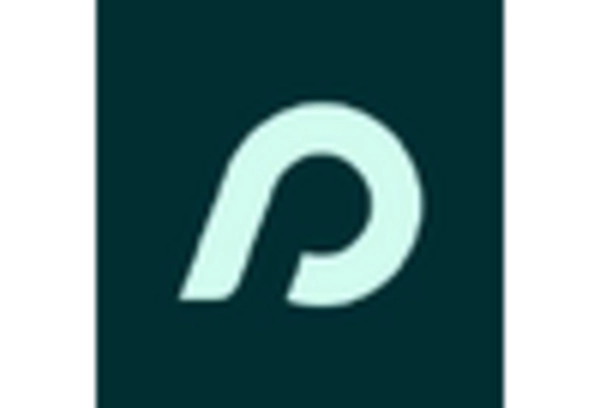Focus on Risk Management
Risk management has emerged as a crucial driver within the Procurement as a Service Market. Organizations are increasingly aware of the potential risks associated with supply chain disruptions, compliance issues, and supplier reliability. By leveraging Procurement as a Service, companies can enhance their risk management strategies through better visibility and control over their procurement processes. Service providers often employ sophisticated risk assessment tools and methodologies to identify and mitigate potential risks. Recent studies indicate that organizations utilizing these services experience a 25% reduction in supply chain disruptions. This focus on risk management not only safeguards business operations but also fosters stronger relationships with suppliers, thereby enhancing overall supply chain resilience. Consequently, the emphasis on risk management is likely to propel the growth of the Procurement as a Service Market.
Cost Efficiency and Savings
The Procurement as a Service Market is increasingly recognized for its potential to drive cost efficiency and savings for organizations. By outsourcing procurement functions, companies can leverage the expertise of specialized service providers, which often leads to reduced operational costs. According to recent data, organizations that adopt Procurement as a Service can achieve savings of up to 30% on procurement expenditures. This is primarily due to improved negotiation strategies and bulk purchasing power that service providers possess. Furthermore, the ability to streamline procurement processes allows companies to focus on core business activities, thereby enhancing overall productivity. As businesses continue to seek ways to optimize their budgets, the appeal of cost efficiency in the Procurement as a Service Market remains a compelling driver.
Scalability and Flexibility
Scalability and flexibility are vital attributes driving the Procurement as a Service Market. As businesses evolve, their procurement needs can fluctuate significantly. Procurement as a Service offers organizations the ability to scale their procurement functions up or down based on current requirements without the burden of maintaining a large in-house team. This adaptability is particularly beneficial for companies experiencing rapid growth or seasonal fluctuations in demand. Furthermore, service providers can quickly implement changes in procurement strategies to align with market trends, ensuring that organizations remain competitive. The ability to respond swiftly to changing business environments is increasingly valued, and this flexibility is likely to attract more companies to the Procurement as a Service Market. As a result, the demand for scalable solutions is expected to rise.
Access to Advanced Technologies
The integration of advanced technologies is a pivotal driver in the Procurement as a Service Market. Service providers are increasingly utilizing artificial intelligence, machine learning, and data analytics to enhance procurement processes. These technologies facilitate better decision-making, predictive analytics, and improved supplier management. For instance, AI-driven tools can analyze vast amounts of data to identify cost-saving opportunities and optimize supplier selection. The market for procurement technology is projected to grow significantly, with estimates suggesting a compound annual growth rate of over 10% in the coming years. This technological advancement not only improves efficiency but also enables organizations to adapt to changing market conditions swiftly. As a result, the adoption of advanced technologies in the Procurement as a Service Market is likely to continue driving growth and innovation.
Enhanced Supplier Relationships
The Procurement as a Service Market is characterized by a growing emphasis on enhancing supplier relationships. Service providers often bring expertise in supplier management, which can lead to improved collaboration and communication between organizations and their suppliers. By fostering stronger relationships, companies can negotiate better terms, ensure quality compliance, and achieve more favorable pricing. Recent data suggests that organizations that prioritize supplier relationship management can see a 20% increase in supplier performance metrics. This focus on collaboration not only benefits procurement outcomes but also contributes to innovation and sustainability initiatives. As businesses recognize the value of strategic supplier partnerships, the trend towards enhanced supplier relationships is likely to continue shaping the Procurement as a Service Market.
